PROMOTION
Click here to download a pdf of the NGS 2016 flyer.
May 26 - June 1, 2025
Cuatro Ciénegas, Mexico
July 20, 2025
Liverpool, United Kingdom
July 20 - 24, 2025
Liverpool, United Kingdom
ISCB Official Event
September 18-20, 2025
Kolkata, India
Dec 11-13, 2025
Hong Kong, China
ISCB Official Event
ISCB’s Annual Flagship Meeting
Support the society while achieving your marketing goals
Become a ISCB collaborative conference, learn more here
Regional, topical, worldwide - your platform to present science
dedicated to facilitating development for students and young researchers
The ISCB Affiliates program is designed to forge links between ISCB and regional non-profit membership groups, centers, institutes and networks that involve researchers from various institutions and/or organizations within a defined geographic region involved in the advancement of bioinformatics. Such groups have regular meetings either in person or online, and an organizing body in the form of a board of directors or steering committee. If you are interested in affiliating your regional membership group, center, institute or network with ISCB, please review these guidelines (.pdf) and send your exploratory questions to Diane E. Kovats, ISCB Chief Executive Officer (This email address is being protected from spambots. You need JavaScript enabled to view it.). For information about the Affilliates Committee click here.
Topically-focused collaborative communities
Connect with ISCB worldwide
Environmental Sustainability Effort
ISCB is committed to creating a safe, inclusive, and equal environment for everyone
Resource library for education and training materials
Search jobs, find talent
Science at the click of the mouse, recorded talks
High-quality research devoted to computer-assisted analysis of biological data
Latest research and publications
Certifying Quality in Computational Biology Education
Latest updates from ISCB
Highlighting Society events, programs, and achievements
Celebrating scientific achievement and innovation
Honoring our distinguished researchers
Recognizing contributions and achievements
Center for science, collaboration, and training
Click here to download a pdf of the NGS 2016 flyer.
| Early registration opens (when website opens) | Now OPEN! |
| Late Paper/Oral/Poster Submission Open | January 18, 2016 |
| Late Paper/Oral/Poster Submit close | January 22, 2016 |
| Early registration closes | February 29, 2016 |
| Online registration closes | March 26, 2016 |
| NGS 2016 Conference Dates | April 4 - 6, 2016: |
| - Conference: April 4 - 6 |
|
| - Workshop April 6 |
|
Links within this page: Monday, Apr 4 | Tuesday, Apr 5 | Wednesday, Apr 6
| MONDAY, 4 APRIL | ||
Start |
End |
Event |
| 08:00 | 08:30 | Registration |
| 08:30 | 09:00 | Opening by Jen HARROW (Wellcome Trust Sanger Institute), Cedric NOTREDAME (CRG) and Alfonso VALENCIA (ISCB) |
| 09:00 | 09:45 | Keynote Erik KARSENTI European Molecular Biology Laboratory, Heidelberg DE TARA OCEANS: Characterization of global oceans plankton ecosystems |
| 09:45 | 10:15 | Coffee Break |
| Top | Tuesday, Apr 4 | Wednesday, Apr 5 | Thursday, Apr 6 | ||
| Session 1: Genomics (chair: Henrik Lantz, ELIXIR) |
||
| 10:15 | 10:30 | OP1 Genome of the bulb mite - the model organism in studies on sexual selection and the plants pest Mateusz KONCZAL, Centre for Genomic Regulation (CRG), Barcelona ES |
| 10:30 | 10:45 | OP2 White Tailed Deer Genome Assembly Bradley W. LANGHORST, New England Biolabs USA |
| 10:45 | 11:00 | OP3 Genomic profiling and annotation of the boar’s mature sperm transcriptome Marta GÒDIA, Center for Research in Agricultural Genomics (CRAG), Barcelona ES University of Barcelona ES |
| 11:00 | 11:15 | OP4 Analysing the genome diversity of the bucardo, an extinct subspecies of the Spanish wild goat (Capra pyrenaica) Rayner GONZÁLEZ-PRENDES, Center for Research in Agricultural Genomics, Campus Autonoma Univ |
| 11:15 | 11:30 | OP5 A draft genome sequence for the Egyptian fruit bat, the reservoir host for Marburg virus Stephanie D'SOUZA, Boston University School of Medicine, Department of Microbiology USA |
| 11:30 | 11:45 | OP6 Improving the human and mouse GENCODE gene catalogue with NGS technology Jose Manuel GONZÁLEZ, Wellcome Trust Sanger Institute UK |
| 12:05 | 13:30 | Tech Talk 1: Make Big Data an Asset not a Burden Wolfgang MERTZ, CTO Life Sciences and Healthcare, EMC Isilon Systems Division |
| 12:05 | 13:30 | Lunch |
| 13:30 | 13:35 | Introduction by Jennifer HARROW (Wellcome Trust Sanger Institute) |
| 13:35 | 14:20 | Keynote Suzanna E. LEWIS, Lawrence Berkeley National Laboratory, Berkeley USA Genomic surprises: Always Be Ready |
| Session 2: Transcriptomics and Epigenetics (chair: Stephan Ossowski, CRG) |
||
| 14:20 | 14:35 | OP7 Refining and Extending GENCODE Long Noncoding RNA Annotations Using RNA Capture Coupled to Third Generation Sequencing Rory JOHNSON, Centre for Genomic Regulation, Barcelona ES |
| 14:35 | 14:55 | OP8 Finding structural RNAs in NGS data using read block alignment followed by structural alignment Jakob HULL HAVGAARD, University of Copenhagen DK |
| 14:55 | 15:10 | OP9 Long-non coding RNAs repertoire in liver and adipose tissue in chicken Kevin MURET, Agrocampus Ouest - INRA FR |
| 15:10 | 15:25 | OP10 Annotation and differential analysis of splicing events using assembly-first and mapping-first approaches Clara BENOIT-PILVEN, LBMC - ENS Lyon FR |
| 15:25 | 15:45 | Tech Talk 2: QIAGEN Sample to Insight: An introduction to the QIAGEN Bioinformatics Solutions Elodie DUBUS, Ph.D |
| 15:45 | 16:15 | Coffee break |
| 16:15 | 16:30 | OP11 Genome-wide prediction of active regulatory elements and their directionality using peak-valley-peak histone modification patterns Sachin PUNDHIR, Finsen laboratory and BRIC, University of Copenhagen DK |
| 16:30 | 16:45 | OP12 Investigating the nuclear spatial conformation of livestock genomes using Hi-C Sylvain FOISSAC, INRA-GenPhySE FR |
| 16:45 | 17:05 | Tech Talk 3: Atos as a Global IT partner for Genomics projects Josema CAVANILLAS, Big Data and Security head, Atos Iberia Natalia JIMENEZ, Life Sciences Business Development Manager, Atos |
| 17:05 | 17:10 | Introduction of Keynote Speakers - TBD |
| 17:10 | 17:55 | Keynote Dave BURT, The Roslin Institute, University of Edinburgh, Scotland UK Annotation of the chicken and other avian genomes |
| 18:30 | 20:00 | Networking and Poster Presentations |
| Top | Monday, Apr 4 | Tuesday, Apr 5 | Wednesday, Apr 6 | ||
| TUESDAY, 5 APRIL | ||
Start |
End |
Event |
| 08:45 | 09:00 | Morning welcome and Introduction by Jan GORODKIN, Center for non-coding RNA in Technology and Health, Copenhagen DK |
| 09:00 | 09:45 | Keynote Peter STADLER, Dept. of Computer Science & Interdisciplinary Center of Bioinformatics, Leipzig University, Leipzig DE The Interplay of Methylome and Transcriptome - Computational Techniques and Surprising Findings |
| 09:45 | 10:05 | Tech Talk 4: End-to-End RNA-Seq Solutions for Discovery Aida SOLER, Marketing Technical Specialist, ILLUMINA |
| Session 3: Clinical Annotation (chair: Roderic Guigó, CRG) |
||
| 10:30 | 10:45 | OP13 MyVariant.info: community-aggregated variant annotations as a service Jiwen XIN, The Scripps Research Institute USA |
| 10:45 | 11:00 | OP14 (and Tech Talk) Accurate and rapid clinical Whole-Genome Sequence (WGS) interpretation with VAAST and PHEVOR using Omicia for the UK’s 100,000 Genome Project Martin REESE, Omicia Inc. USA |
| 11:00 | 11:15 | OP15 Study the false variants in high throughput DNA sequencing data Yingxue REN, Mayo Clinic USA |
| 11:15 | 11:30 | OP16 New fusions transcripts discoveries in acute myeloid leukemia: from software to biological validation Thérèse COMMES, Université de Montpellier FR |
| 11:30 | 11:45 | OP17 Pan-Cancer Identification and Prioritization of Cancer-Associated Alternatively Spliced and Differentially Expressed Genes: A Biomarker Discovery Application Daryanaz DARGAHI, Genome Sciences Center, BC Cancer Agency CA |
| 11:45 | 12:00 | OP18 Species-independent identification of known and novel recurrent genomic entities in multiple cancer patients Jose Mg IZARZUGAZA, Center for Biological Sequence Analysis DK |
| 12:00 | 12:20 | Tech Talk 5: Managing SW-Dependencies with Docker Containers for Large-Scale Bio-Technology Workloads Fritz FERSTL, CTO, Univa |
| Session 4: Methods (chair: Alfonso Valencia, ISCB) |
||
| 14:00 | 14:15 | OP19 NET-GE: a web-server for linking protein variations to biological processes and pathways Pier Luigi MARTELLI, University of Bologna IT |
| 14:15 | 14:30 | OP20 Oxford Nanopore sequencing of RNA and error-correction Corinne Da SILVA, Commissariat à l'Energie Atomique (CEA), Institut de Génomique (IG), Genoscope FR |
| 14:30 | 14:45 | OP21 An integrative approach for improved transcript reconstruction David SWARBECK and The Genome Analysis Centre |
| 14:45 | 15:00 | OP22 Redesigning the Ensembl Gene Annotation System Fergal MARTIN, EMBL-EBI UK |
| 15:00 | 15:15 | OP23 Nextflow: a tool for easy, reproducible and portable deployment of NGS analysis workflows Maria CHATZOU, Centre for Genomic Regulation, Barcelona ES |
| 15:15 | 15:30 | OP24 The RAPI Read Aligner API Luca PIREDDU, Center for Advanced Studies, Research and Development in Sardinia IT |
| 15:30 | 15:45 | OP25 Optimal marker gene alignment at the speed of heuristic aligners Gabriel AL-GHALITH, University of Minnesota USA |
| 15:45 | 16:15 | Coffee Break |
| 16:15 | 16:20 | Introduction by Roderic GUIGÓ (CRG) |
| 16:20 | 17:05 | Keynote Rachel KARCHIN, The William R. Brody Faculty, Johns Hopkins University, Baltimore USA CRAVAT 4.0: informatics tools for high-throughput analysis of exome variants |
| 17:05 | 17:35 | Awards and closing remarks |
| Top | Monday, Apr 4 | Tuesday, Apr 5 | Wednesday, Apr 6 | ||
| WEDNESDAY, 6 APRIL | ||
POST CONFERENCE WORKSHOP09:00 - 18:00Reproducible genomic data analysis using short and long-read RNAseq data |
||
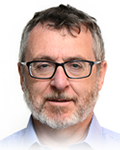 |
DAVE BURT The Roslin Institute The University of Edinburgh United Kingdom > Click here for biography < |
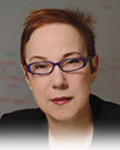 |
RACHEL KARCHIN Associate Professor The William R. Brody Faculty Scholar Institute for Computational Medicine Department of Biomedical Engineering Department of Oncology Johns Hopkins University Baltimore, Maryland, USA Title: CRAVAT 4.0: Informatics Tools for High-throughput Analysis of Exome Variants > Click here for abstract & biography < |
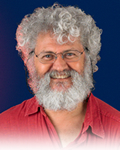 |
ERIC KARSENTI European Molecular Biology Laboratory Heidelberg, Germany Title: TARA OCEANS: Characterisation of Global Oceans Plankton Ecosystems > Click here for abstract & biography < *************************************************** Congratulations to Eric Karsenti! On September 27, 2015, Eric Karsenti was awarded the Centre National de la Recherche Scientifique (CNRS) gold medal, France's highest scientific distinction that recognizes a French scientist in any field covered by the CNRS. |
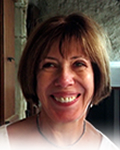 |
SUZANNA E. LEWIS Scientist and Principal Investigator (PI) Berkeley Bioinformatics Open-source Project (BBOP) Lawrence Berkeley National Laboratory Berkeley, California, USA > Click here for biography < |
 |
PETER F. STADLER Professor University Leipzig, Germany Santa Fe institutes in Mexico Anew, USA Max-Planck's Institute of Mathematics in the Sciences, Germany > Click here for abstract & biography < Title: The Interplay of Methylome and Transcriptome - Computational Techniques and Surprising Findings |
| ABSTRACTS & BIOGRAPHIES | |
| DAVE BURT
CV: www.roslin.ed.ac.uk/dave-burt/curriculum-vitae/ |
|
RACHEL KARCHIN Title: CRAVAT 4.0: Informatics Tools for High-throughput Analysis of Exome Variants Biography: Rachel Karchin received a PhD in Computer Science from the University of California Santa Cruz in 2003 and did postdoctoral research in the Department of Biopharmaceutical Sciences at University of California San Francisco. She joined the faculty of Johns Hopkins University in 2006, where she is currently an Associate Professor with joint appointments in the Departments of Biomedical Engineering and Oncology. She was appointed as the Whiting School of Engineering William R. Brody Faculty Scholar in 2013. Dr. Karchin’s lab develops computational and statistical methods to interpret and predict the impact of individual variation in the genome, transcriptome, and proteome. These methods are being applied to discovery and clinical translation in cancer, cystic fibrosis and psychiatric disorders. The lab is deeply embedded in collaborations that include geneticists, oncologists, pathologists, psychiatrists and surgeons. |
|
|
ERIC KARSENTI Biography: On September 27, 2015, Eric Karsenti was awarded the Centre National de la Recherche Scientifique (CNRS) gold medal, France's highest scientific distinction that recognizes a French scientist in any field covered by the CNRS. Research director at the CNRS and Senior Scientist at EMBL, he is a member of EMBO and of the French Academy of Sciences. Since 2009 he is the Scientific Director of the TARA OCEANS expedition. |
|
| SUZANNA E. LEWIS
Biography: Suzanna E. Lewis is a scientist and Principal Investigator (PI) at the Berkeley Bioinformatics Open-source Project (BBOP) based at Lawrence Berkeley National Laboratory. Lewis leads the development of open standards and software for genome annotation and ontologies. She led the team responsible for the systematic annotation of the Drosophila melanogaster genome, which included development of the chado annotation pipeline and database framework, and the annotation curation tool Apollo. Lewis' work in genome annotation also includes playing instrumental roles in the GASP community assessment exercises to evaluate the state of the art in genome annotation, development of the Gbrowse, Jbrowse, and Web Apollo genome browsers, and the data coordination center for the modENCODE project. In addition to her work in genome annotation, Lewis has been a leader in the development of interoperable biological ontologies, now collected under the Open Biomedical Ontologies (OBO) effort. These include the original founding of the Gene Ontology (for which she remains a Principal Investigator), the Sequence Ontology, Uberon anatomy ontologies, and developing open software for editing and navigating ontologies such as AmiGO, OBO-Edit and Phenote. Most recently her team is developing methods for discovery of genotype to phenotype relationships as part of the Monarch Initiative. In 2005 Lewis was elected a fellow of the American Association for the Advancement of Science in recognition of her contributions to science in the fields of Information, Computing, and Communication. |
|
| PETER F. STADLER The Interplay of Methylome and Transcriptome - Computational Techniques and Surprising Findings Abstract: With the increasing availability of large-scale bisulfite sequencing data, in particular in the context of the ICGC efforts, efficient tool for analyzing genome-wide methylome sequencing have become a pressing need. To cope with large numbers of sample we have developed an efficient method to call differentially methylated regions (DMRs). Applied to a data set of Burkitt lymphoma, follicular lymphoma, and normal germinal center B cell samples we observed differential methylation of intragenic regions that strongly correlated with expression of associated genes. DMRs between Burkitt and follicular lymphomas implicated DNA methylation as cooperating with somatic mutation of sphingosine phosphate signaling, as well as the TCF3-ID3 and SWI/SNF complexes, in a large fraction of Burkitt lymphomas. The same data set also exhibits important changes in transcript structures. To address this issue in detail, we developed a method to assess differential splicing on a per-junction basis. Surprisingly, very different alterations of genome, methylome, and transcriptome converge at the very similar molecular phenotypes. While higher levels of methylation are normally associated with transcriptional silencing, there is a systematic, counter-intuitive, positive correlation between methylation and expression levels in most cancers. This phenomenon is associated with poised chromatin and affects in particular developmental genes and transcription factors. We suggest that the alteration of the epigenetic status of poised chromatin is intimately linked to tumorigenesis. Biography: Peter F Stadler, born in 1965, is professor for bioinformatics at the University Leipzig since 2002. He did a doctorate in 1990 in Chemistry at the University of Vienna. After a postal doctorate in the Max-Planck's institute of biophysical chemistry in Goettingen he went back to Vienna in 1991 and qualified as a professor in 1994 in Theoretical Chemistry. Since 1994 he is also an external professor in Santa Fe institutes in Mexico Anew. Since 2009 he works as a foreign scientific member also at the Max-Planck's Institute of Mathematics in the Sciences. His fields of research: Bioinformatics with main focus on structural biology and comparative Genomics, non-encoding RNAs, mathematical bases of the evolution biology, and discreet mathematics. |
|
Thank you for attending ISCB NGS-Barcelona. You may access your registration record by logging into the system below.
We hope to see you in 2017!
| EARLY REGISTRATION - Through 29 February 2016 | |
| MEMBERS: | |
| ISCB Member/ CRG | $260.00 |
| ISCB Students Members and CRG Students (with i.d.) | $145.00 |
| Post Conference Workshop | SOLD OUT |
| NON-MEMBERS: | |
| Non-member | $460.00 |
| Students - nonmember | $295.00 |
| Non-member Post Conference Workshop | SOLD OUT |
| REGULAR REGISTRATION - AFTER 29 February 2016 | |
| MEMBERS: | |
| ISCB Member/ CRG | $310.00 |
| ISCB Students Members and CRG Students (with i.d.) | $195.00 |
| NON-MEMBERS: | |
| Non-member | $510.00 |
| Students - non-member | $345.00 |
| ONSITE REGISTRATION | |
| MEMBERS: | |
| ISCB Member/ CRG | $410.00 |
| ISCB Student Member and CRG Student (with i.d.) | $295.00 |
| NON-MEMBERS: | |
| Non-member | $645.00 |
| Student - non-member | $525.00 |
Cancellation Policy: Request for registration cancellation must be made in writing and emailed to ISCB Registration Office, e-mail This email address is being protected from spambots. You need JavaScript enabled to view it., or faxed to +1-619-374-2890. All refunds will be processed following the conference. Refunds will be made in accordance with the following schedule:
Cancellations received by March 15, 2016 will receive a 50% refund.
No refund of fees will be made on or after March 15, 2016.
If you have any questions, please contact the ISCB administrator at This email address is being protected from spambots. You need JavaScript enabled to view it..
Hosted by the International Society for Computational Biology (ISCB) and the Centre for Genomic Regulation (CRG), this year’s edition of ISCB in Barcelona will be dedicated to Genome Annotation.
It is a dedicated meeting on cutting-edge approaches to the processing and analysis of Genome Annotation methods. It will bring together bioinformatics researchers involved in the development of genome annotation methods, along with biologists interested in the establishment and annotation of new reference genomes. The conference will address a wide range of issues including RNASeq-based genome annotation, non-coding RNA analysis, proteomics data integration and data visualization. Sizeable space will also be dedicated to emerging and future trends in genomics including eco-system analysis and novel reference genomes.
Topics include:
The conference will also aim to encompass the associated computational challenges:
Original Research submissions will be accepted for oral presentation, as well as Poster abstracts.
| PRBB Auditorium CRG – Centre for Genomic Regulation Dr. Aiguader, 88 08003 Barcelona, Spain |
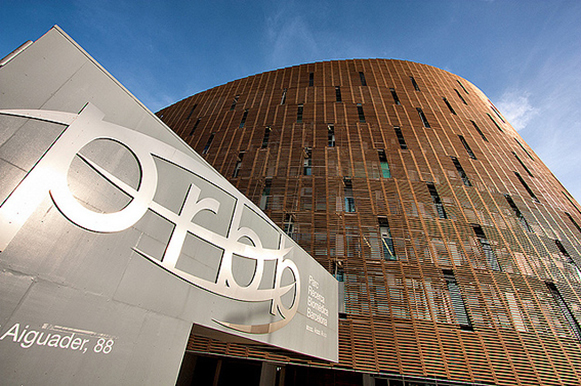 |
| Click here for Google Map: | 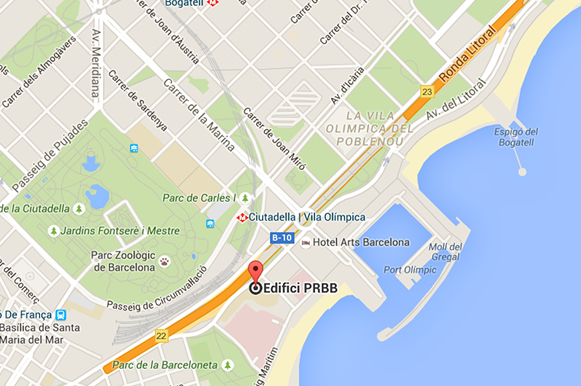 |
Accommodation near the venue
Useful Links
ISCB Members enjoy discounts on conference registration (up to $150), journal subscriptions, book (25% off), and job center postings (free).
Connecting, Collaborating, Training, the Lifeblood of Science. ISCB, the professional society for computational biology!
Giving never felt so good! Considering donating today.